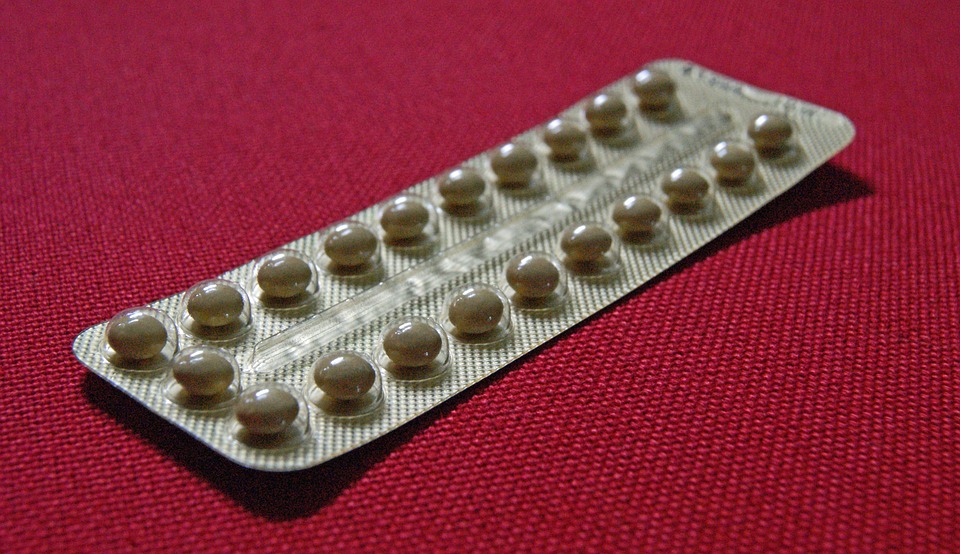The Role of Hormones in Reproductive Health: What You Need to Know
Introduction
Hormones play a vital role in regulating reproductive health. They are biochemical messengers that influence a variety of physiological functions, including sexual development, menstrual cycles, pregnancy, and menopause. Understanding the role hormones play in reproductive health is essential for both men and women. This article will provide a comprehensive overview of hormonal influences on reproductive health, addressing common hormonal disorders, the impact of lifestyle factors, and approaches to maintaining hormonal balance.
1. Understanding Hormones
Hormones are substances produced by glands in the endocrine system that travel through the bloodstream to regulate processes in the body. These processes include growth, metabolism, and reproduction. In the context of reproductive health, hormones such as estrogen, progesterone, testosterone, luteinizing hormone (LH), and follicle-stimulating hormone (FSH) play critical roles.
1.1 Estrogen
Estrogen is primarily produced in the ovaries and is essential for the development of female secondary sexual characteristics, the regulation of the menstrual cycle, and the maintenance of pregnancy. In men, estrogen is involved in modulating libido and the production of sperm.
1.2 Progesterone
Progesterone is another hormone produced mainly in the ovaries, particularly after ovulation. It prepares the uterus for potential implantation of a fertilized egg and supports early stages of pregnancy. Low levels of progesterone can result in irregular menstruation and fertility issues.
1.3 Testosterone
Though often considered a male hormone, testosterone is also present in women and is important for sexual function, bone density, and the overall well-being of both genders. In men, it is critical for sperm production and regulating libido.
1.4 Luteinizing Hormone (LH) and Follicle-Stimulating Hormone (FSH)
Both LH and FSH are crucial for regulating the reproductive processes in both men and women. In women, they control the menstrual cycle and ovulation, while in men, they influence sperm production.
2. Hormonal Regulation of the Menstrual Cycle
Understanding the menstrual cycle is critical to grasping how hormones affect reproductive health. The menstrual cycle is divided into several phases, each influenced by fluctuations in hormone levels.
2.1 The Follicular Phase
This phase begins on the first day of menstruation and lasts until ovulation. During this time, FSH promotes the growth of ovarian follicles, which produce estrogen.
2.2 Ovulation
Ovulation typically occurs around day 14 of a 28-day cycle. A surge in LH leads to the release of a mature egg from the ovary. This phase marks the peak of fertility.
2.3 Luteal Phase
Following ovulation, the corpus luteum forms and produces progesterone, which stabilizes the uterine lining for potential implantation. If pregnancy does not occur, hormone levels drop, leading to menstruation.
3. Common Hormonal Disorders
Several hormonal disorders can impact reproductive health. Understanding these conditions can aid in early diagnosis and treatment.
3.1 Polycystic Ovary Syndrome (PCOS)
PCOS is a common endocrine disorder characterized by irregular menstrual cycles, excess androgen levels, and polycystic ovaries. Women with PCOS often experience symptoms such as weight gain, acne, and hirsutism. The hormonal imbalance associated with PCOS can lead to fertility issues.
3.2 Amenorrhea
Amenorrhea is the absence of menstruation and can be caused by various factors, including hormonal imbalances, significant weight loss, or stress. Identifying the underlying cause is essential for effective treatment.
3.3 Endometriosis
Endometriosis occurs when uterine tissue grows outside the uterus, often causing pain and infertility. This condition is influenced by hormonal fluctuations, particularly estrogen.
3.4 Hypogonadism
In both men and women, hypogonadism refers to inadequate hormone production. In women, low estrogen can result in irregular cycles, while men may experience low testosterone levels that affect libido and sperm production.
4. The Impact of Lifestyle on Hormonal Balance
Lifestyle choices significantly influence hormone levels and reproductive health. Factors such as diet, exercise, stress, and sleep can either promote hormonal balance or contribute to imbalances.
4.1 Diet
A balanced diet rich in nutrients can support hormone production. Foods high in omega-3 fatty acids, antioxidants, and fiber play a role in hormonal health. Conversely, high sugar intake and trans fats can disrupt hormone levels, increasing the risk of conditions like insulin resistance.
4.2 Exercise
Regular physical activity benefits hormonal balance. Exercise can improve insulin sensitivity, which is crucial for maintaining hormone levels. However, excessive exercise can lead to hormonal imbalances, particularly in women.
4.3 Stress Management
Chronic stress elevates cortisol levels, which can disrupt the balance of reproductive hormones. Stress management techniques like mindfulness, yoga, and regular physical activity can help maintain hormonal balance.
4.4 Sleep Hygiene
Quality sleep is crucial for hormonal health. Sleep deprivation can lead to imbalances in hormones like ghrelin and leptin, which regulate hunger, as well as cortisol and sex hormones.
5. Hormone Replacement Therapy and Its Role
Hormone replacement therapy (HRT) is a treatment used to alleviate symptoms related to hormonal imbalances, particularly during menopause. HRT typically involves the administration of estrogen and progesterone.
5.1 Benefits of HRT
HRT can alleviate symptoms like hot flashes, night sweats, and mood swings. It may also help in reducing the risk of osteoporosis and heart disease in postmenopausal women.
5.2 Risks of HRT
While HRT can provide significant benefits, it also carries risks, such as an increased risk of certain cancers and cardiovascular events. It is essential for individuals to discuss these risks with their healthcare provider.
6. Integrative Approaches to Reproductive Health
In addition to medical treatments, integrative approaches can support hormonal balance and reproductive health.
6.1 Herbal Remedies
Some herbs like vitex (chaste tree) and maca root have been traditionally used to support hormonal balance. These natural remedies may offer benefits but should be approached with caution and ideally under the guidance of a healthcare professional.
6.2 Acupuncture
Acupuncture may support reproductive health by improving blood flow and modulating hormonal balance. Some studies suggest it can enhance fertility in women undergoing assisted reproductive technologies.
6.3 Nutritional Supplements
Vitamins and minerals such as vitamin D, magnesium, and B vitamins play essential roles in hormone regulation. Supplementation may be beneficial for those with deficiencies but should be personalized.
7. The Future of Hormone Research
Research into hormones and reproductive health is ongoing, with exciting developments that may lead to new treatments and therapies.
7.1 Genomic Medicine
Advancements in genomic medicine may provide insights into how genetic factors influence hormonal health, leading to personalized treatment options.
7.2 Novel Therapies
Emerging research into new hormonal therapies aims to minimize side effects while maximizing benefits. These innovations hold promise for addressing complex hormonal disorders.
Conclusion
Hormones are fundamental to reproductive health, influencing various physiological processes. Understanding their roles, recognizing common disorders, and adopting a healthy lifestyle can significantly enhance reproductive health. By staying informed and proactive, individuals can take charge of their hormonal health and overall well-being.
References
- [Modern Footnote Source]
This article serves as an overview of the intricate relationship between hormones and reproductive health. For a more in-depth exploration of specific topics, further research and consultation with healthcare professionals is recommended.


























Add Comment